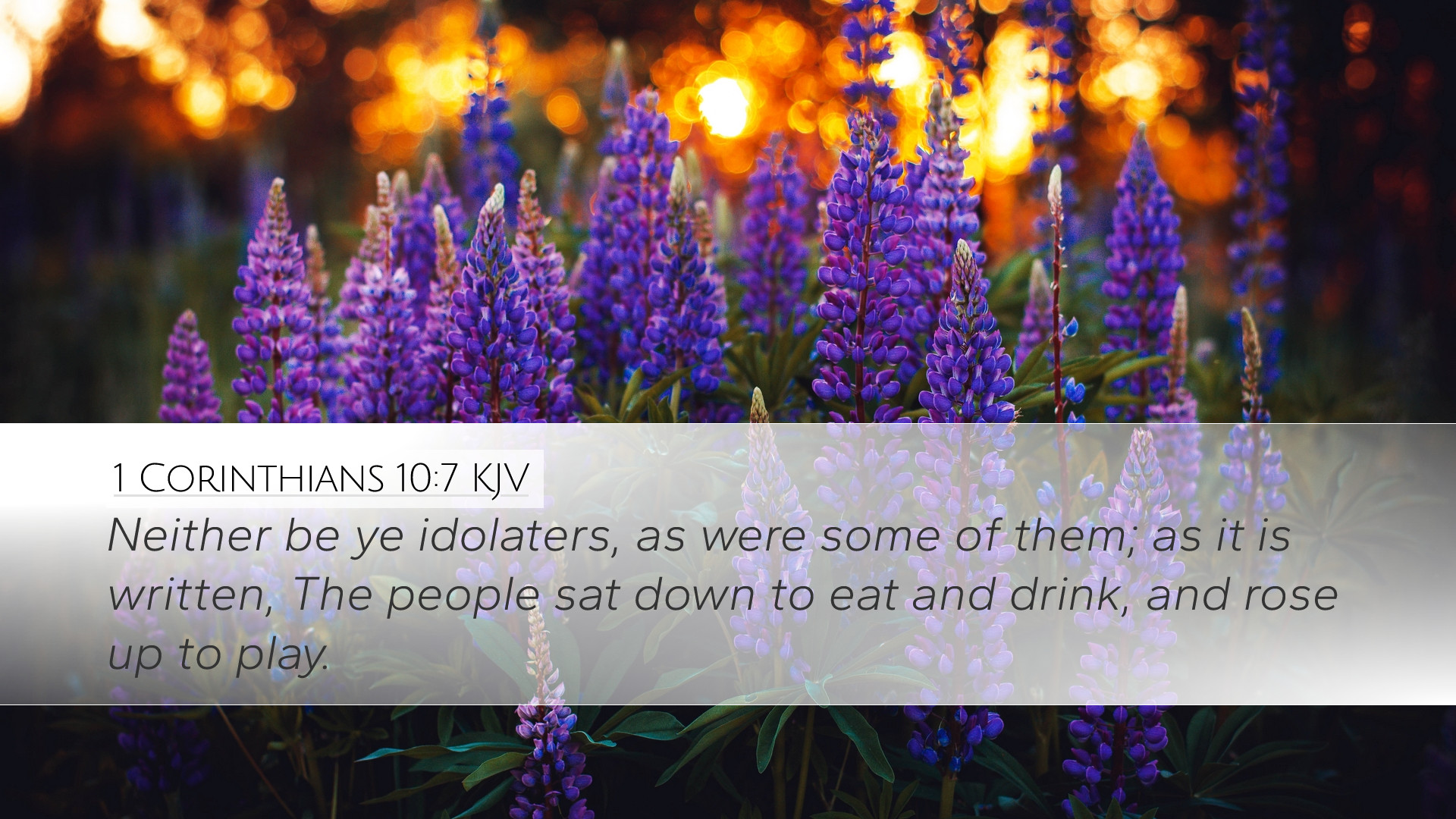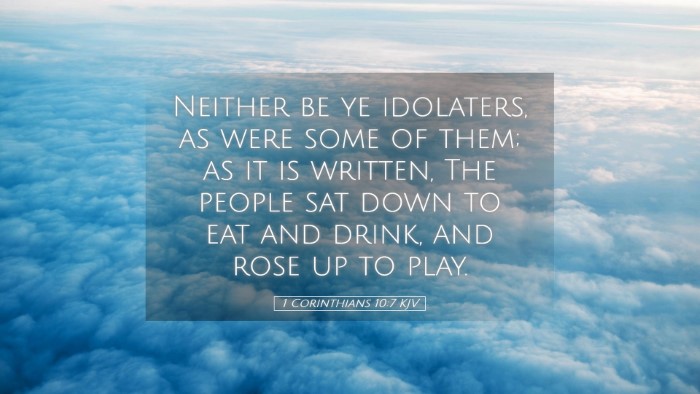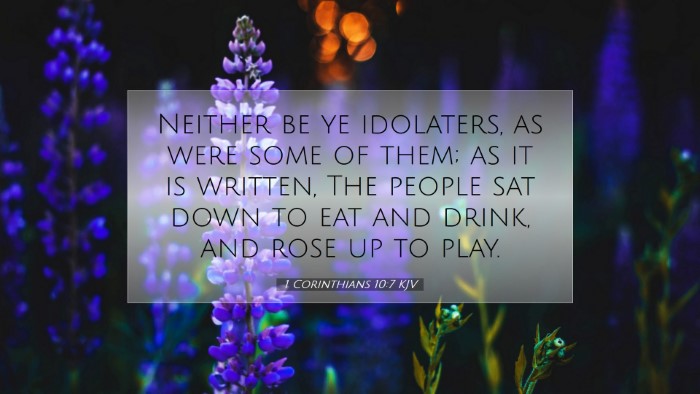Commentary on 1 Corinthians 10:7
Verse Context: 1 Corinthians 10:7 states, "Neither be ye idolaters, as were some of them; as it is written, The people sat down to eat and drink, and rose up to play." This verse reflects Paul's caution against idolatry, drawing a parallel between the Corinthians' potential pitfalls and the historical failures of Israel during the wilderness journey.
Historical Background
The Apostle Paul wrote this epistle to address various issues within the Corinthian church, including divisions, immorality, and misunderstandings regarding Christian liberty. By referencing Israel's past, especially their idolatrous activities, Paul admonishes Corinthian believers to remain vigilant against similar behaviors.
Exegesis and Interpretation
1. Warning Against Idolatry: Paul explicitly warns against idolatry by stating, "Neither be ye idolaters." This serves as a clear directive to the believers, grounding his argument in the historical narrative of Israel's wandering. Matthew Henry emphasizes that idolatry stems from a heart that strays from the living God. He notes that for the Corinthians, engaging in idol worship could detract from their genuine relationship with Christ.
2. Historical Reference: The phrase "as it is written" references Exodus 32:6, where the Israelites, in their impatience for Moses’ return from Mount Sinai, created a golden calf. Albert Barnes reflects on the gravity of this act, indicating it was not merely a lapse but a profound abandonment of trust in the true God. The actions depicted—"sat down to eat and drink, and rose up to play"—suggest a revelry that indicates both disobedience and spiritual apathy.
Theological Insights
1. The Nature of Idolatry: Adam Clarke delves into the essence of idolatry, proposing that it is fundamentally a turning away from God’s sovereignty. Idolatry does not only take the form of physical idols but can also manifest in the worship of modern-day equivalents—wealth, status, pleasure, or any entity that takes precedence over one’s devotion to God.
2. The Consequences of Idolatry: The historical consequence of the Israelites’ idolatry led to severe divine judgment. Paul’s allusion serves as a stark reminder to the Corinthians—and to modern readers—of the dire implications of such behavior. Matthew Henry points out that when the people “rose up to play,” it symbolized the abandonment of moral restraint, which can occur when one places trust in something other than God.
Practical Applications
1. Vigilance in Faith: Paul’s exhortation underscores the necessity for vigilance within the Christian community. Believers are encouraged to examine their lives critically, discerning any possible idols that may have insidiously crept into their hearts, thus overshadowing their devotion to Christ.
2. Corporate Worship and Practices: The reference to communal activities—eating, drinking, and celebrating—can also reflect the significance of corporate worship and how communal practices can either draw one closer to God or lead to distractions. It prompts modern congregations to evaluate the traditions and practices they uphold and ensure they align with biblical teachings.
Reflection for Pastors and Leaders
This verse serves as an essential reminder for pastors and leaders to foster an environment where idolatry is recognized and addressed. Their teaching must guide congregants to understand the subtleties of idolatry in contemporary contexts, encouraging constant reflection on personal and communal allegiance to God.
Conclusion
1 Corinthians 10:7 is a profound admonition against idolatry, highlighting historical precedents and encouraging vigilance in faith. The insights from public domain commentaries provide a rich tapestry of understanding, urging believers to guard their hearts and remain steadfast in their devotion to God. By heeding Paul’s warning, modern followers of Christ can avoid the pitfalls of idolatry and embrace a life defined by genuine worship and faithfulness.


